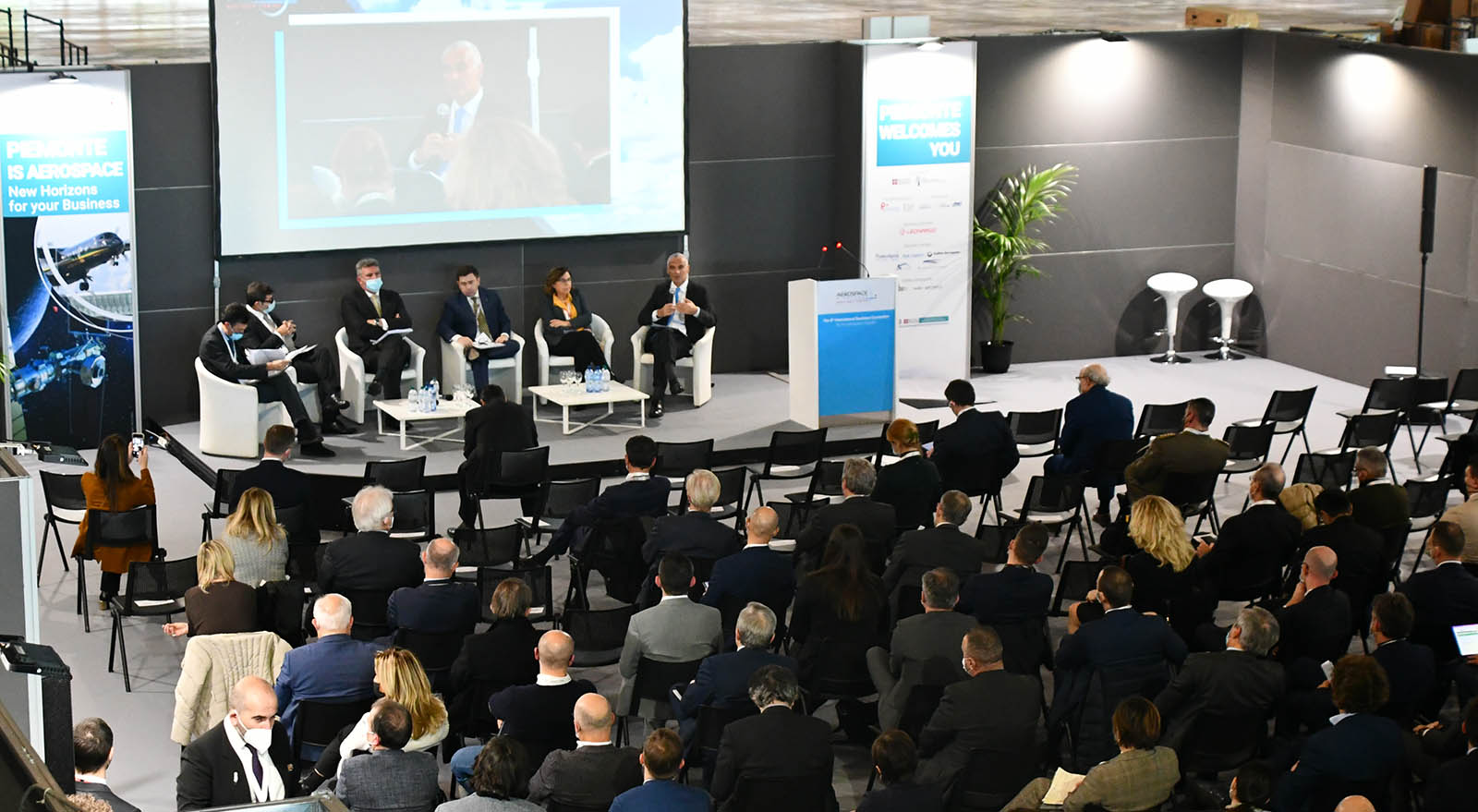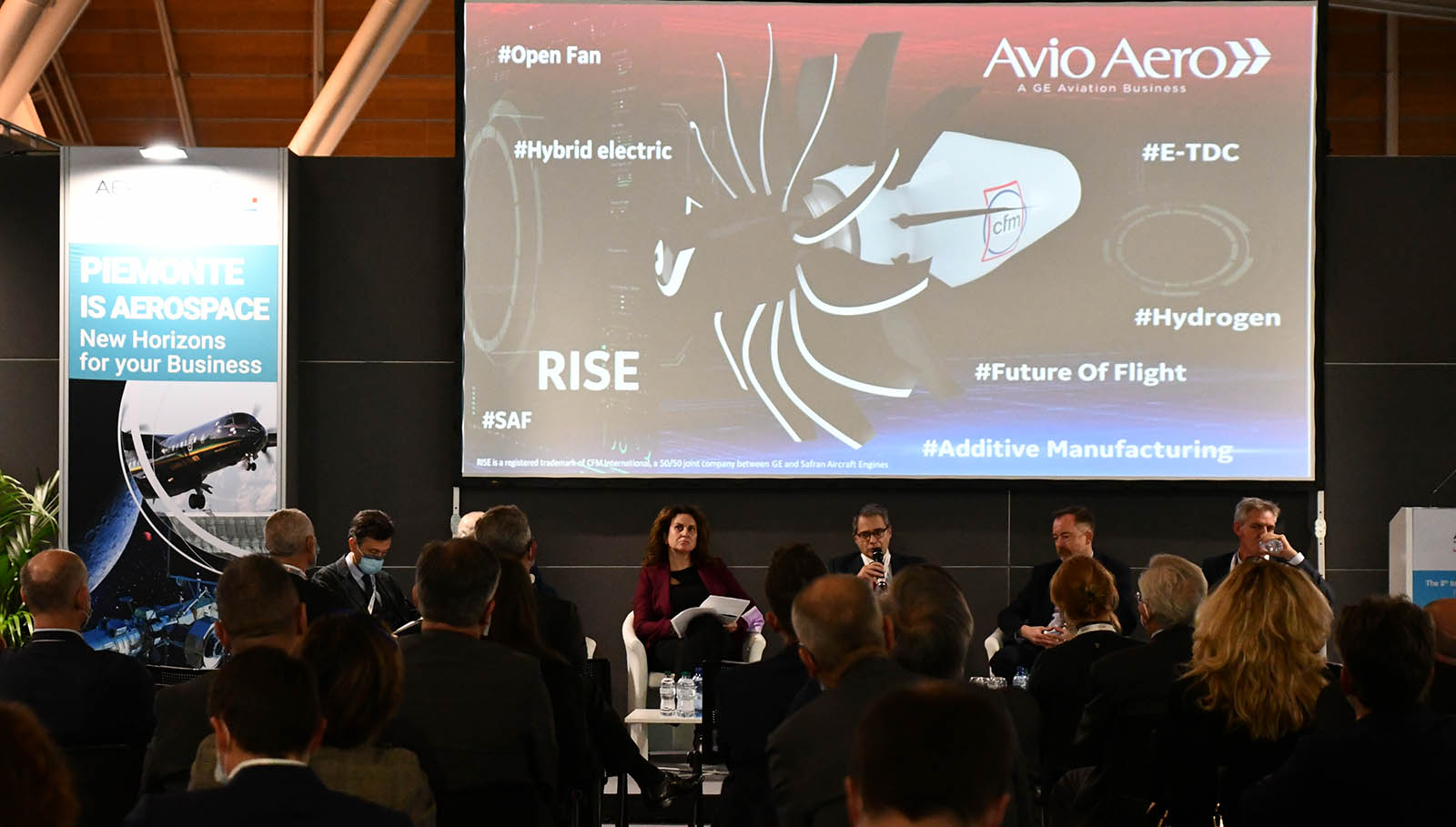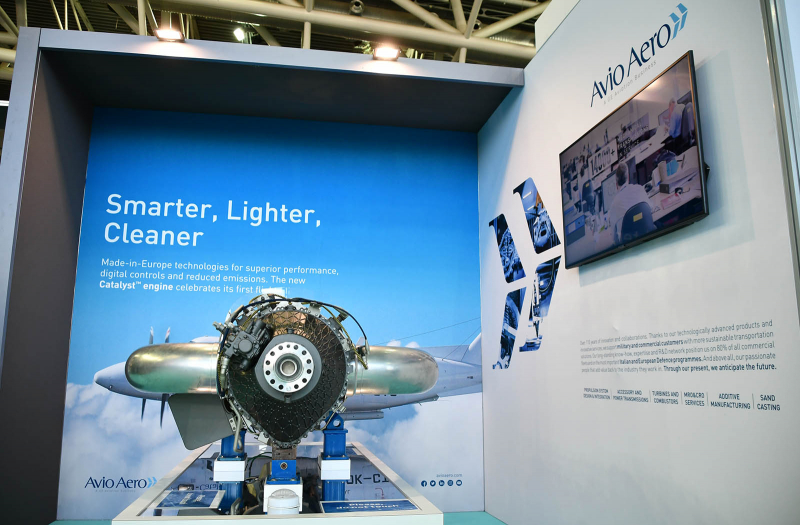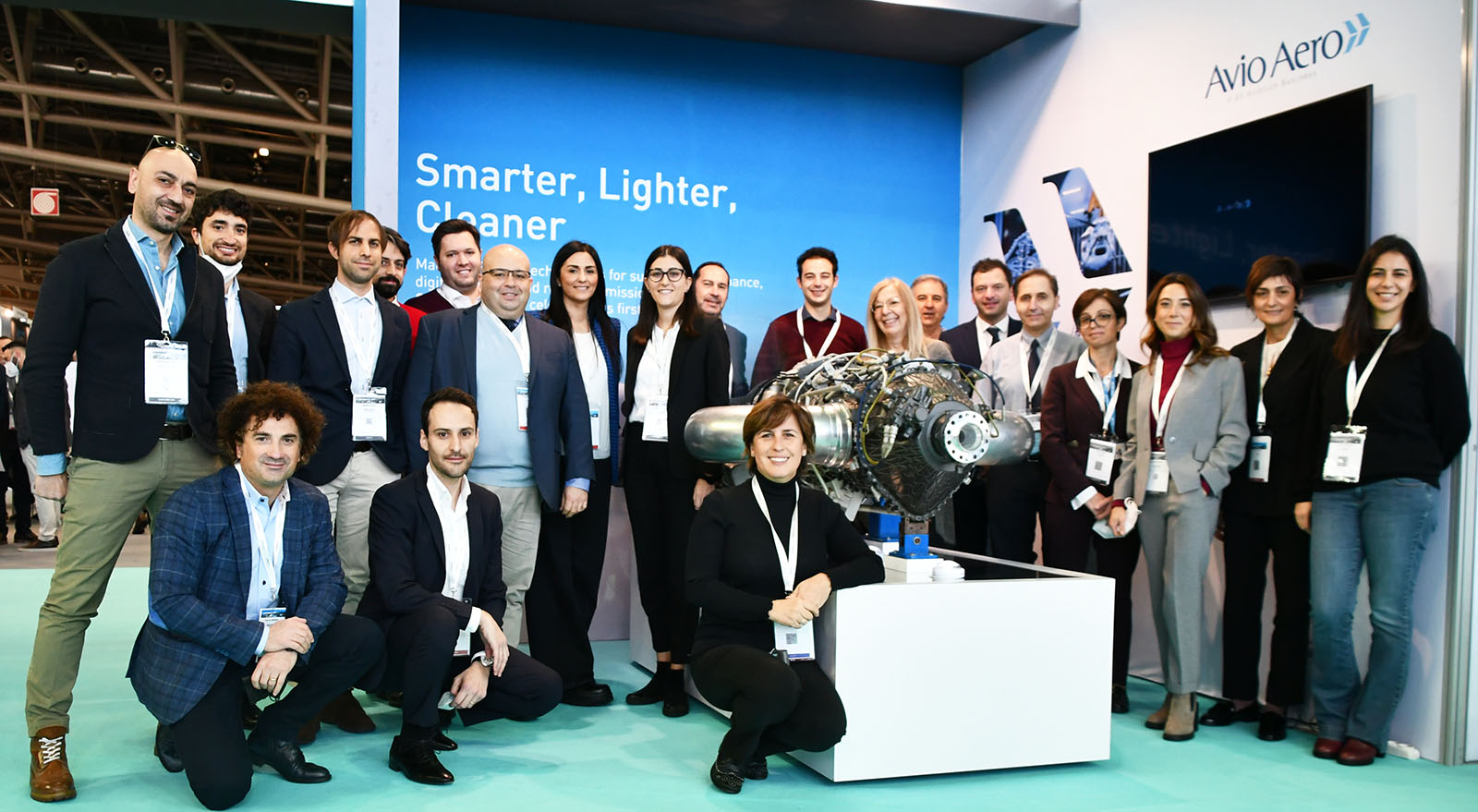Aviation
Turin greets ADM 21
The biennial event was a great occasion for the whole sector, keen to move forward and to look into the future of air transport pursuing sustainability and innovation.
Dec 2021
Avio Aero played a prominent role at the 2021 edition of the Aerospace & Defense Meetings, contributing to many panels during the three-day event at the Oval Lingotto in Turin. The discussion centered on the company's various strategies and challenges, including: the sustainability of the aeronautics industry, the aviation of the future, and the challenges imposed on the sector and its supply chain as a result of the pandemic.
The event had gained relevance as it coincided with the European public premiere of the full-scale model of the Catalyst: the first all-new turboprop engine to be designed and built in the last 50 years, with production entirely based in Europe. A concentration of power and technology, destined to revolutionize its market segment in terms of performance and sustainability.
The sustainability of the aerospace sector was the central theme on the opening day of the Aerospace & Defense Meetings, with two panels focused on this topic. During the first of these, managing director Riccardo Procacci was joined by his counterparts from major players in the sector and representatives from the institutions, and stressed his commitment to "embracing the challenges of a more sustainable form of aviation, which follows the market growth we can expect as we emerge from the pandemic."
Indeed, the aeronautical market is certain to get back into the race, possibly leading "to a 40% increase in flights and a doubling of the number of passengers by 2050". As Riccardo Procacci pointed out, this is certainly positive news, but it "should act as a wake-up call, because if we do nothing, its effect on emissions will be devastating."
So the goal is to work on programs and projects that will revolutionize air transport, in response to the need to achieve carbon neutrality by 2050. These include the RISE program announced by CFM (a joint venture between GE Aviation and Safran), where Avio Aero will play an active part, employing the skills acquired in major European research programs such as Clean Aviation and Horizon Europe. As the CEO of Avio Aero explained, this "involves an engine with a completely new architecture, and aims to reduce emissions for short/medium range aircraft by 20%".
But the RISE program is only one of many initiatives geared towards sustainable flight, because Avio Aero is also involved in the development of hybrid-electric and hydrogen-powered engines.
Research in these fields has made great strides in recent years, especially with regard to hybrid-electric technology, and we could see such engines being tested very soon. During the course of the expert panel, Luca Bedon, Advanced Technologies, R&T Engineering Manager of Avio Aero, spoke about the state of research and the technologies that will revolutionize air transport. He stressed that: "RISE is more than a technological development program, it is also a vessel for investment in the research and development of new technologies that will transform the sector."
As he explained: "In order to meet the goal of reducing emissions and fuel consumption by 20%, we will need to develop lighter components with superior performance, as well as ensuring the engines use SAF (Sustainable Aviation Fuel)." Avio Aero will certainly be a key player in the field of alternative fuels such as SAFs, as a result of the expertise it acquires during the forthcoming tests on the Catalyst.
Hybrid-electric development will also prove vital in the future, and the objective is to advance this technology and start implementing it in the field of aeronautics. Luca Bedon outlined the company's approach: "We believe the regional market will be the first to adopt this solution, and the combination of an electric engine and an advanced turboprop will lead to significant fuel savings and lower emissions."
GE’s brand-new turboprop engine will literally act as a "catalyst" for these technologies, and as a test bed for many different applications. The full-scale model of General Electric's new turboprop engine attracted great attention from the public during the three-day event. Visitors could also hear the story behind the technical development of the engine, thanks to contributions by Paolo Salvetti, Sales Director Military Turboprop Engines, and Alberto Demenego, Catalyst Life Cycle Engineering Manager.
As Paolo Salvetti explained: "This long journey began with a blank sheet of paper in 2015 and culminated in 2021 with the first ever flight. The idea was a response to the opportunities offered by the market, which required the development of a new turboprop engine equipped with the latest technologies."
Many decades of research and development lie behind the production of the Catalyst. Certain factors clearly differentiate it from its main competitors. These include its innovative design, the use of components produced by additive manufacturing, advanced technological solutions for the combustor, turbines, compressor and transmission, and finally, the inclusion of an FADEC system. This is an advanced integrated propeller and engine control system.
This technology ensures very high performance and simplifies the pilot’s work, while reducing fuel consumption and emissions. Above all, as Alberto Demenego explained: "The Catalyst should be regarded as a technological accelerator whose potential can yet be deployed further."
A road map was created for the new advanced turboprop, which will lead to the use 100% SAFs and to its future use as a generator for an electric motor. This is possible because “at cruising altitude, turboprop engines are pushed to their maximum, enabling the generation of just over 1 MW of power. This makes Catalyst perfect for a hybrid-electric solution,” Demenego added.
Among the conferences, the central day also saw the one in which Avio Aero illustrated its path of Lean transformation: Davis Quirico and Ezio Dadone shared experiences of the digitization of processes on the shop floors led by the Manufacturing and Digital teams, inspired by from the culture of agility and waste reduction, and powered by algorithms for collaborative intelligence.
Certainly, the future of aviation will depend on the ability of the entire supply chain to respond to the need for innovation, in order to achieve climate neutrality. The sector was severely tested by the effects of the pandemic, and as Margherita Bertinotti, Avio Aero Sourcing Leader, went on to explain, this included: "hyperinflation with regard to certain materials and components, leading to dramatic increases in purchase costs."
However, the market is now rebounding, and creating new opportunities for the sector: opportunities that emerged during the Aerospace & Defense Meetings where "large companies had live encounters with SMEs, finding new room for collaboration, strengthening ties, making agreements and sharing visions of progress."








